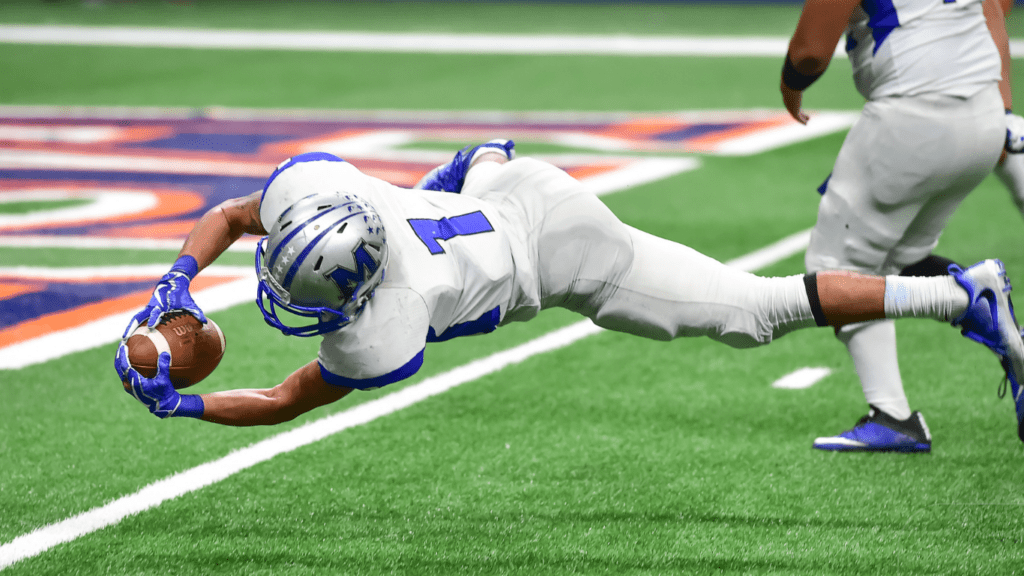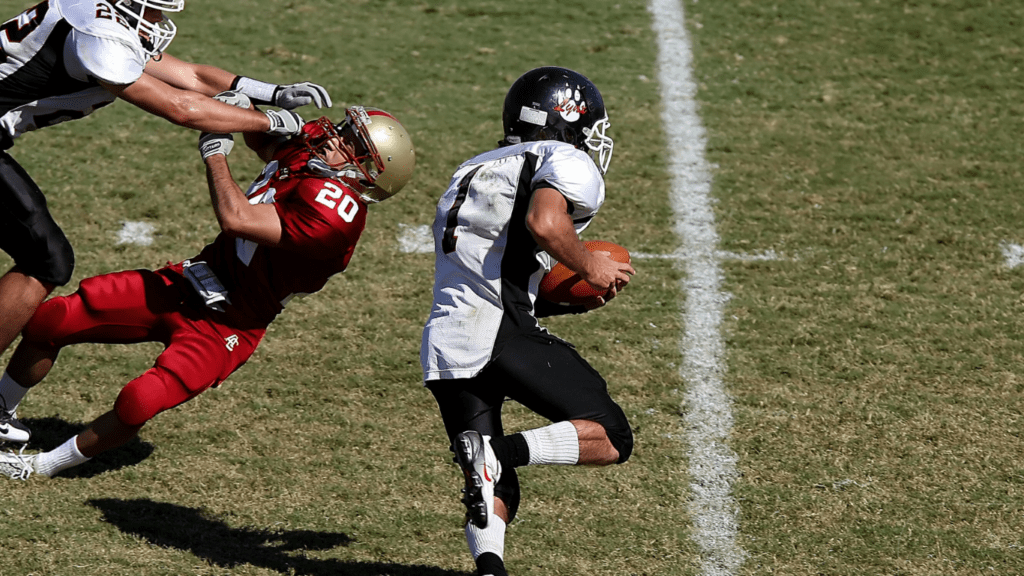As a football player, setting clear goals is the key to unlocking both short-term victories and long-term success on the field. Whether it’s improving your passing accuracy or increasing your speed, having well-defined objectives can propel your game to new heights. In this article, I’ll guide you through the art of goal setting tailored specifically for football players, helping you take your performance to the next level.
From scoring more goals in the upcoming season to securing a spot in the starting lineup, establishing achievable targets is crucial for staying motivated and focused throughout your football journey. By breaking down your aspirations into manageable steps, you can track your progress and make necessary adjustments to stay on course towards your ultimate footballing aspirations. Let’s dive into the strategies and tactics that will empower you to set and achieve your football goals effectively.
The Importance of Goal Setting in Football
Setting goals in football is crucial for players to improve their performance both in the short term and long term. By establishing clear objectives, such as enhancing passing accuracy or increasing speed, players can experience success on the field. Breaking down these goals into manageable steps allows players to monitor their progress, stay motivated, and make any necessary adjustments to achieve their ultimate football aspirations. Goal setting is a fundamental aspect of player development and success in the sport.
Benefits of Short-Term Goals
Short-term goals in football provide players with immediate targets to focus on, leading to incremental improvements in various aspects of their game. These goals can be achieved in a relatively shorter time frame, boosting player confidence and morale. Examples of short-term goals include improving dribbling skills, increasing stamina, or perfecting set-piece routines. By setting and accomplishing short-term goals, players can build momentum and lay the foundation for achieving more significant objectives in the long run.
Long-Term Goals for Career Development
Long-term goals in football are essential for players to plan for their future and career growth within the sport. These goals are broader in scope and typically require sustained effort and commitment over an extended period. Examples of long-term goals include earning a spot in a professional club, representing the national team, or becoming a team captain. By setting long-term goals, players can stay focused, motivated, and dedicated to continuous improvement, ultimately paving the way for a successful football career.
Establishing Effective Goals for Football Players
Setting goals is a crucial aspect of a football player’s success. As a player, I understand the importance of establishing clear objectives to improve my performance on the field. I break down these goals into manageable steps to track my progress, stay motivated, and make any necessary adjustments along the way.
- SMART Criteria for Goal Setting
When it comes to goal setting in football, I rely on the SMART criteria to ensure effectiveness. Specific goals, like improving dribbling skills, help me focus on precise areas for enhancement. Measurable objectives, such as increasing my goal-scoring rate by 20%, allow me to track my improvement quantitatively. Achievable targets are essential to maintain motivation and avoid frustration in the pursuit of success. Relevant goals align with my overall aspirations in football, whether it’s securing a starting position or winning a championship. Time-bound objectives, like mastering a new technique within a month, provide a sense of urgency and direction to my training efforts. - Balancing Team and Individual Goals
As a football player, striking a balance between team and individual goals is key to overall success. I prioritize team objectives, such as winning matches and supporting my teammates, to contribute to our collective achievements. Simultaneously, I set personal goals, like improving my assist record or being named Player of the Match, to challenge myself and push beyond my limits. By balancing these goals effectively, I enhance both my individual performance and the team’s overall success, creating a winning dynamic on the field.
Common Challenges in Goal Setting

Addressing challenges in goal setting is crucial for football players striving for success on and off the field. Let’s explore some common obstacles players may encounter in setting and achieving their goals.
Overcoming Distractions and Setbacks
Staying focused amidst distractions and resilient in the face of setbacks is essential in goal attainment. As a player, I recognize the importance of maintaining mental strength to overcome external interferences and bounce back from disappointments. Developing coping strategies and a positive mindset can help mitigate distractions and setbacks, ensuring steady progress towards set objectives.
Inconsistency in Performance and Motivation
Consistency in performance and sustaining motivation are key factors that can impact goal achievement in football. From my experience, I’ve found that maintaining a balance between performance levels and staying motivated can be challenging. Implementing routines, setting mini-goals, and seeking support from coaches and teammates are effective strategies to combat inconsistency and keep motivation levels high throughout the journey towards both short-term and long-term goals.
Strategies for Monitoring Progress
When it comes to tracking my progress towards achieving my goals as a football player, there are key strategies that I find particularly effective. By regularly reviewing my goals with my coaches and utilizing performance metrics, I ensure that I stay on the right track and make meaningful advancements in my playing ability. Here are some valuable insights on monitoring progress in football goal setting:
Regular Goal Reviews with Coaches
In my experience, scheduling regular goal reviews with my coaches has been instrumental in keeping me accountable and focused on my objectives. During these sessions, I discuss my short-term and long-term goals with my coaches, receive constructive feedback, and adjust my strategies accordingly. This collaborative approach not only provides me with valuable insights but also motivates me to push myself harder to achieve optimal results on the field.
Using Performance Metrics Effectively
One of the most effective ways I monitor my progress as a football player is by using performance metrics to track key indicators of success. Metrics such as completion rates, running distances, successful tackles, and goal assists help me assess my performance objectively and identify areas for improvement. By analyzing these metrics regularly, I can set specific targets for myself, measure my growth over time, and make informed decisions to enhance my skills and overall gameplay.

 Chelsea Haynes is a valued member of the Awesome Football Network team, where she excels as a skilled contributor and article writer. With a sharp eye for detail and a deep love for football, Chelsea produces compelling content that covers a diverse range of topics, including team dynamics, player performances, and game strategies. Her insightful articles are crafted to engage and inform readers, providing them with a deeper understanding of the sport.
Chelsea's expertise and dedication to football journalism enhance the quality of content at Awesome Football Network. Her contributions help keep the platform at the forefront of football news, ensuring that fans and professionals alike stay well-informed and connected to the latest developments in the world of football.
Chelsea Haynes is a valued member of the Awesome Football Network team, where she excels as a skilled contributor and article writer. With a sharp eye for detail and a deep love for football, Chelsea produces compelling content that covers a diverse range of topics, including team dynamics, player performances, and game strategies. Her insightful articles are crafted to engage and inform readers, providing them with a deeper understanding of the sport.
Chelsea's expertise and dedication to football journalism enhance the quality of content at Awesome Football Network. Her contributions help keep the platform at the forefront of football news, ensuring that fans and professionals alike stay well-informed and connected to the latest developments in the world of football.
